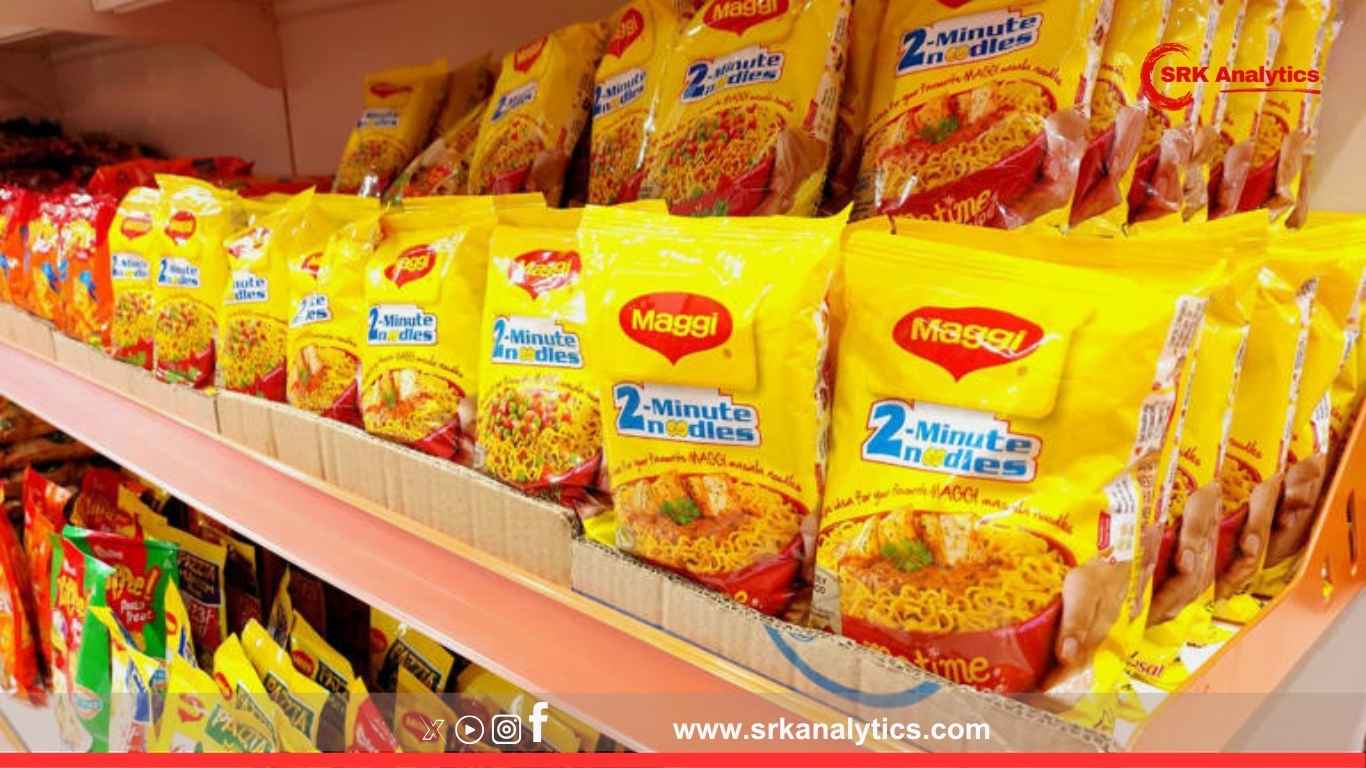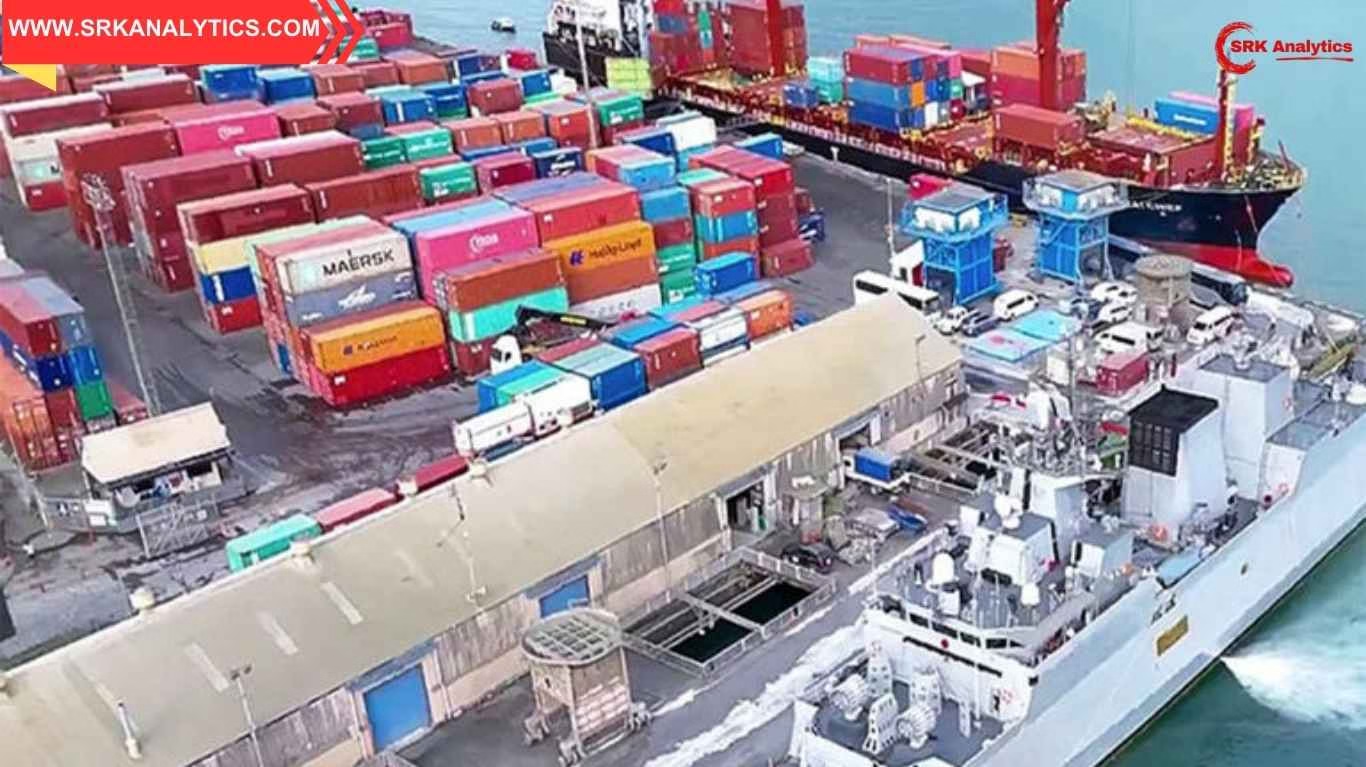Nestle India has announced the commissioning of a new production line for its flagship Maggi noodles at the company’s Sanand factory in Gujarat with an investment of ₹105 crore. The expansion marks another milestone in Nestle’s strategy to strengthen its instant foods portfolio and boost manufacturing capacity to meet rising consumer demand across India.
Key Highlights Of The Expansion
- Location: Sanand, Gujarat
- Investment: ₹105 crore
- Purpose: Establishment of an additional Maggi noodles production line
- Capacity Increase: The new line is expected to significantly augment daily noodle production volumes to cater to Western and Northern Indian markets.
- Employment Impact: Over 100 direct and indirect jobs created through this expansion.
- Environmental Focus: The facility continues to integrate sustainability initiatives in energy and water usage, aligned with Nestle India’s ESG goals.
Strategic Significance For Nestle India
Nestle India’s MD Suresh Narayanan stated that the investment in Sanand underlines the company’s commitment to Gujarat as a key manufacturing hub and enhances supply chain efficiencies for Maggi. The new line is part of the company’s overall expansion strategy, which includes:
- Increasing production capacities to keep pace with growing consumption of instant noodles across urban and rural markets.
- Enhancing regional manufacturing hubs to reduce logistics costs and carbon footprint.
- Integrating automation and digital manufacturing technologies for improved quality, safety, and efficiency.
Rising Demand For Maggi Noodles
Maggi remains a dominant player in India’s ₹10,000 crore instant noodles market, commanding nearly 60% market share despite intensifying competition. The brand continues to be popular due to:
- Affordable pricing and accessible pack sizes.
- Strong rural and urban distribution networks.
- Product innovation in flavours, health variants, and premium offerings such as Maggi Fusian.
India Instant Noodles Market Snapshot
| Parameter | FY25 Estimates |
|---|---|
| Market size | ₹10,000 crore+ |
| CAGR | ~8-10% |
| Key players | Nestle (Maggi), ITC (Yippee), CG Foods (Wai Wai), Hindustan Unilever (Knorr) |
| Top growth drivers | Urbanisation, nuclear families, busy lifestyles, snacking habits, rural penetration |
About Sanand Manufacturing Facility
Nestle India’s Sanand factory, operational since 2012, is one of its most modern units, housing multiple production lines for noodles and culinary products. Key features include:
- High levels of automation and digital process controls.
- Energy-efficient operations with a focus on renewable sources.
- Water conservation practices through advanced recycling and zero liquid discharge systems.
- Workforce diversity initiatives, employing women in production and supervisory roles.
Management Statement On Expansion
Speaking at the commissioning ceremony, Suresh Narayanan remarked:
“Our Sanand factory is an integral part of our commitment to Make in India. The ₹105 crore investment in the new Maggi production line reflects our focus on catering to evolving consumer preferences while creating economic value and jobs.”
Nestle India’s Broader Expansion Plans
The Sanand project is part of Nestle India’s announced ₹5,000 crore investment plan over the next five years, aimed at:
- Capacity expansion across factories in Punjab, Karnataka, Goa, and Gujarat.
- Upgradation to energy-efficient and digital manufacturing systems.
- Innovation in ready-to-cook and ready-to-eat segments, including breakfast cereals, culinary aids, and health-focused food products.
- Strengthening rural distribution and cold chain infrastructure.
Sustainability Commitments
Nestle India is also focused on aligning its expansion with sustainability goals, including:
- Achieving 100% recyclable packaging by 2025.
- Reducing greenhouse gas emissions by 20% by 2025 and targeting net zero by 2050.
- Enhancing responsible sourcing of agricultural raw materials to empower local farmers.
Competitive Landscape Analysis
The noodles category has seen new entrants and aggressive product launches from competitors like ITC and CG Foods. However, Maggi’s brand loyalty, deep market penetration, and continuous innovation have helped maintain its leadership position. Recent Maggi launches include:
- Maggi Nutri-licious with added fibre and protein.
- Regional flavours to cater to local taste preferences.
- Premium variants like Maggi Fusian Korean BBQ and Hot Heads for urban youth.
Economic And Employment Impact
The expansion at Sanand contributes to:
- Local employment generation with over 100 jobs.
- Stimulating ancillary industries including packaging, raw material suppliers, and logistics.
- Enhancing Gujarat’s reputation as a manufacturing and food processing hub, complementing the state’s industrial policies and ease of doing business initiatives.
Analyst Perspective
Market analysts note that Nestle India’s strategic focus on capacity expansion is aligned with:
- Rising demand for instant and convenient food products in urban and rural markets.
- Potential exports to neighbouring countries in the future from its advanced Indian facilities.
- Strengthening resilience in supply chains to manage commodity price volatility and logistical disruptions.
Future Outlook
With the commissioning of the new Maggi production line, Nestle India aims to:
- Meet the festive season and rural consumption spikes efficiently.
- Innovate in health-oriented noodle variants to cater to urban health-conscious consumers.
- Drive penetration in untapped rural markets where Maggi has scope for higher market share gains.
Conclusion
Nestle India’s ₹105 crore investment in expanding its Maggi noodles production at Sanand reiterates the brand’s leadership vision in the instant noodles segment. The move strengthens its manufacturing capacity, creates local employment, and aligns with sustainability commitments, cementing its long-term growth plans in India’s food processing and packaged food sector.
Disclaimer: This article summarises corporate announcements and market insights for informational purposes. Readers are advised to conduct further research or consult professionals before making business or investment decisions based on these updates.












проект перепланировки цена проект перепланировки цена .
перепланировка квартиры согласование перепланировка квартиры согласование .
1xbet g?ncel 1xbet g?ncel .
seo services company seo services company .